
Is slow traveling actually therapeutic?
Despite my disastrous first week in Tofo, I ended up staying in this sleepy seaside village for almost two months, apart from a short visa run to the border. What I love about slow traveling is that it gives you the chance to see beyond first impressions, a chance to deepen your connections and get an in-depth understanding of the context you are existing within.
The first two weeks in Tofo felt like summer camp for grown ups. I was sharing a room with three other girls and the giggles were endless. The place where we stayed was damp and only had hot water some mornings but the level of community I got from them was beautiful. Midnight walks on the beach, endless conversations about anything and everything that we were processing at the time, hours of silently creating side by side. The laughter when we were getting ready together to go out in the evenings and the cascade of gossip that erupted when we came home, exhausted from all the dancing. It made me think that perhaps my solo traveling doesn’t always need to mean that I do everything on my own. I truly enjoyed connecting over the shared experiences.
What happens to us when we slow down?
After three weeks in Tofo, my frown was finally turned upside down. All the good energies, people and food that surrounded me were rubbing off on me, including me into their abundance, beauty and joy. Today, a few months later, I have realised that it was my nervous system that started to relax. Not just from the hectic visa issues that I’d been struggling with just a few weeks earlier… No, the process runs a lot deeper than that. I believe that, for the first time in my adult life, with indefinite amounts of time ahead of me, I started to release some of the accumulated stress that comes with living in a hyper individualistic, capitalistic society. Powerful stuff!
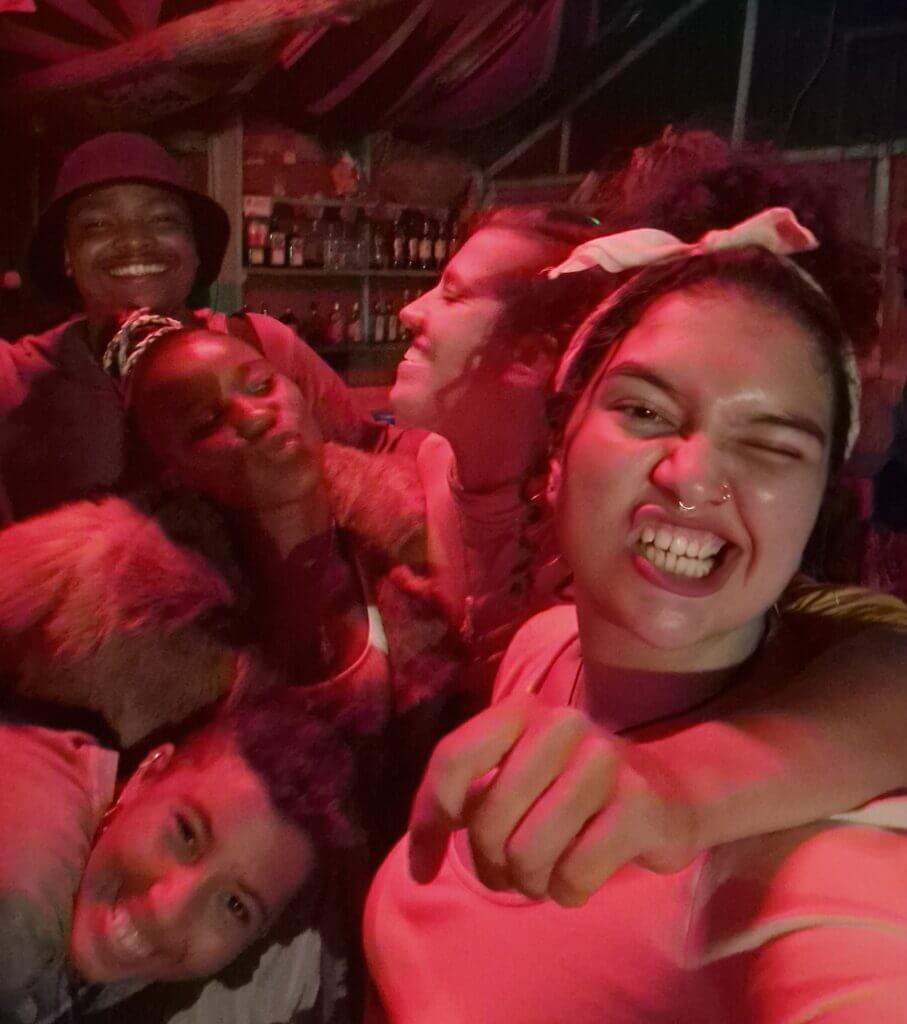
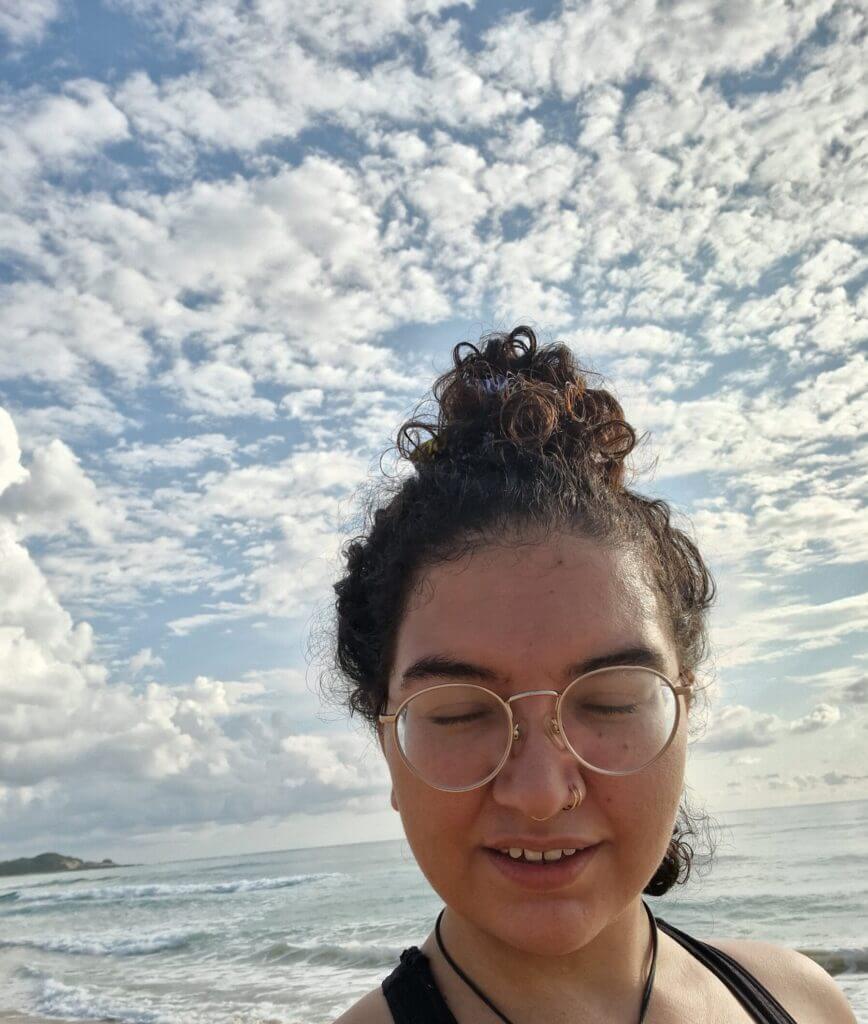
In the beginning, as I started to feel the relaxation of my nervous system happening, I questioned why it was suddenly happening now. For years I have dwelled in different practices and learnt different techniques to relax and live consciously, why am I only starting to feel it now? Perhaps that is what slow traveling allows space for: space for the inner processes to process and for the body’s systems to catch up and return to the present moment. Perhaps it is not even slow traveling specifically but a slow lifestyle in general that allows for this. The stillness, at times turning into boredom, the ‘having’ of undefined amounts of time and no specific goals to achieve, perhaps made everything quiet enough for my systems to start going about things at their own pace. Quiet enough for the ‘I’ to actually listen.
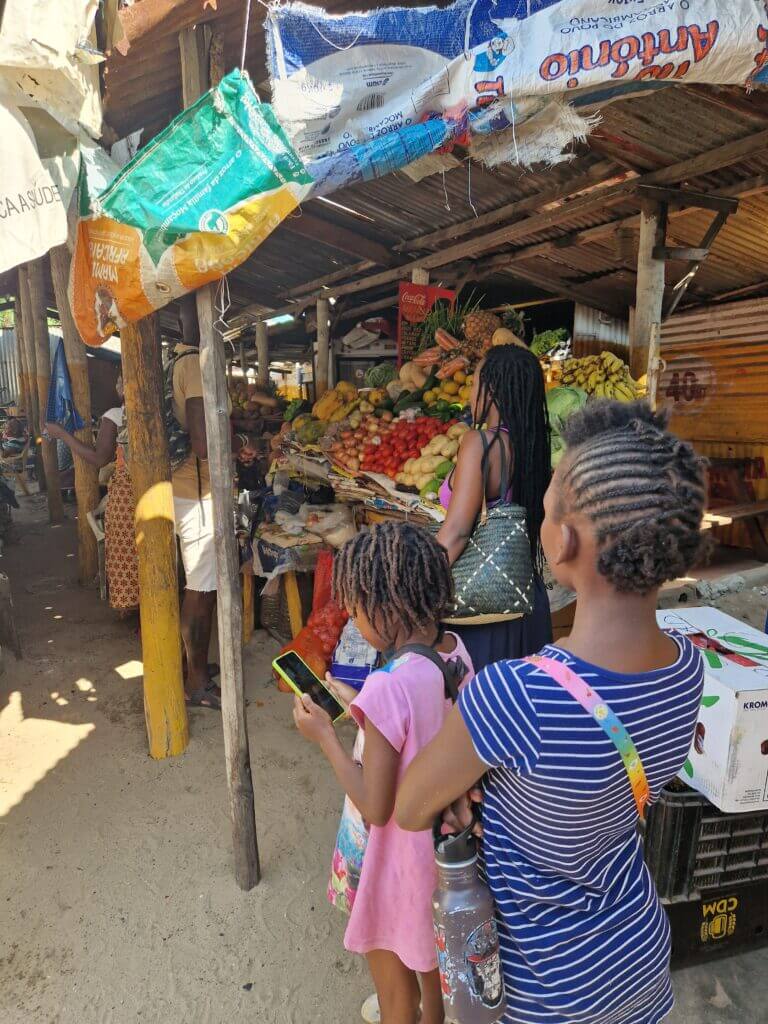
Slow traveling and sustainable tourism
After my first week in Tofo I had a pretty good grip of where everything was. I had found the best spots to eat lunch, a hidden gem in the middle of the market. After two weeks I was a regular at certain vendors and in the third week the ladies making the meanest mojito in town knew my name.
A friend from Mozambique who is a regular in Tofo told me early on to spread out my grocery needs to different vendors, telling me that low season is especially hard for the market vendors of Tofo. By week two I had my avocado and banana lady, my tomato and potato lady and of course, my pao com badjias lady (mozambican breakfast dish: bread with fried bean balls, absolutely delicious!). When I came back to Tofo after my visa run to the border, the ladies at the market greeted me with warmth. It felt really nice, like being part of a community, not being so anonymous any more. That doesn’t normally happen in the big cities of Sweden where I’m from.
Early on in Tofo, I was told that I must take a tour with a dhow at sea while I am here. A dhow is a traditional sailing boat usually used by fishermen to work. A few years back, some local guys started taking tourists out on the dhows, using the fishermen as captains and themselves becoming the guides. One of these guys is 29 year old Ruben, founder of Boa Gente Tours. Boa gente means good people and seems to be the slogan for the Inhambane province.
The first time I went on one of Rubens tours, it was a game changer. Not only because the experience itself was intensely beautiful and I had what I can only call a spiritual experience when I snorkeled, but because it was the first time I got to encounter the essence of the Mozambican philosophy. Talking to Ruben, he made me open my eyes to how far the community mindset goes here and how different the view of money is. Even in business.
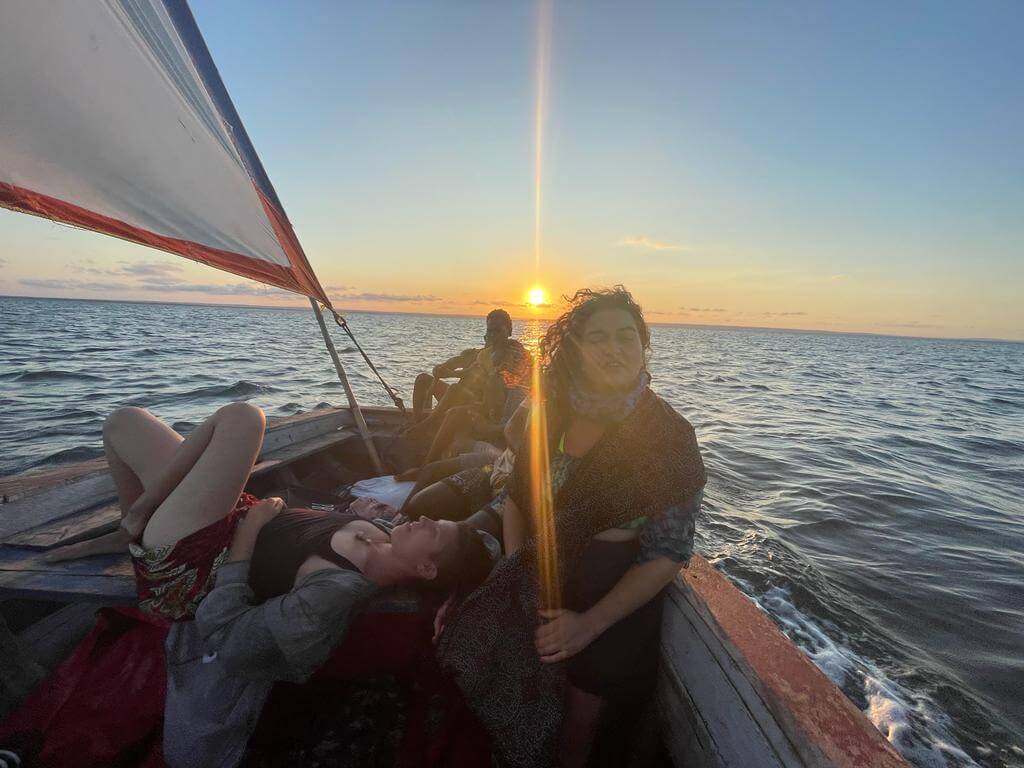
I’ve reflected upon it previously on my instagram, writing about the Mozambican expression of estamos juntos loosely translated we are together or we are in it together. When I’ve encountered the community mindset previously it’s been hard for me to see beyond the codependence such mentality also brings. How can anyone have any freedom at all if you always have to put everyone else first? And of course there is that. But through Ruben and other local entrepreneurs like Percia Perola, founder of Womi Massage in Tofo, I’ve also gotten to see what good it does, all the way from community level into their individual lives.
In academic terms, what they do intuitively is what I would call social sustainable entrepreneurship. It goes beyond making sure that money earned goes back into the community, it expands into knowledge sharing, space holding, emotional and spiritual support, building of schools, funding of solar power and so on.
Of course, in such tight knit societies, a lot of shit gets swept under the rug. If codependency is the premise of survival and security, it is natural to perhaps not call people out on their crap. I can see how those who want something else for themselves, outside of this mindset, suffer in the community context and expectations. They have to struggle with both internal and external guilt to conform and support the community. In many instances they still support their community parallel to also trying to do their own thing, all while constantly having to justify their life choices. Mozambique does not exist in a vacuum and many young people are torn between the different mentalities of urban and rural, community and individual, security and freedom.
However, all the shadows aside, it fascinates me how the concept of sustainability, something that Europe and the western world have taken years to conceptualise and work into laws and put forward as their solution to the problems of the world, still to this day, struggle immensely to implement and get people to understand. Meanwhile, here in Mozambique it is implemented on a day to day basis, to the extent it feels intuitive. It is part of their cultural fabric and social norms. The good as the bad that comes with it.


Four reasons to Slow Travel
- Because it is like medicine for body mind and soul to slow down in a world that constantly wants us to be in movement.
- Because you get a more in depth understanding of the context you are in.
- Because you will have time to form friendships and attachments, becoming part of a context and community.
- Because you get a chance to listen inwards, to your most inner needs, dreams and fears. Who knows, all that thinking and contemplation, you might get an epiphany and decide to take life into a whole different direction!
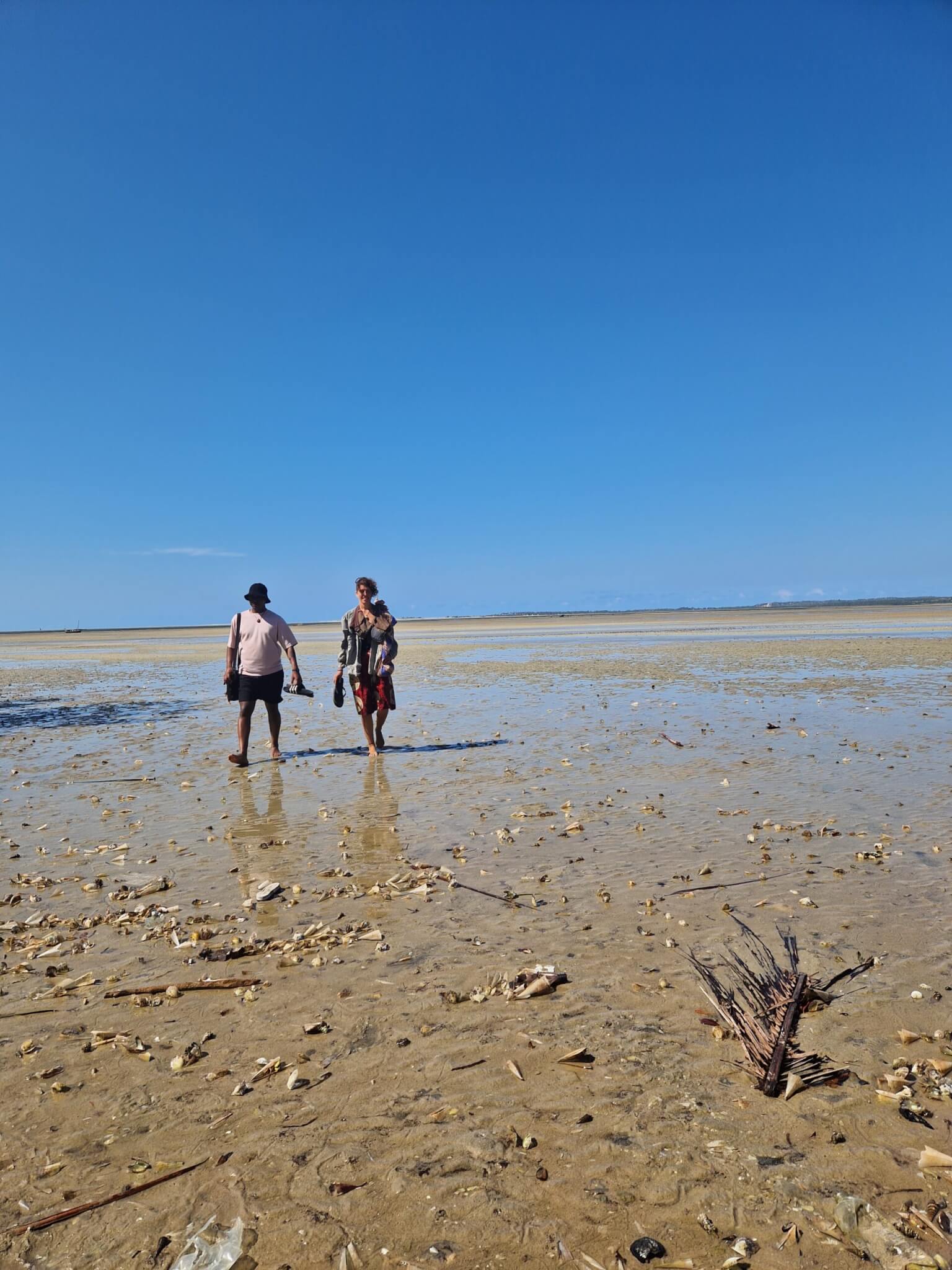
1 thought on “Why slow travel?”
Thank you Makes me go back in my mind
Makes me go back in my mind
Your reflections about the conception of sustainability is interesting. That you mention there is the positive effects as well as a cost.